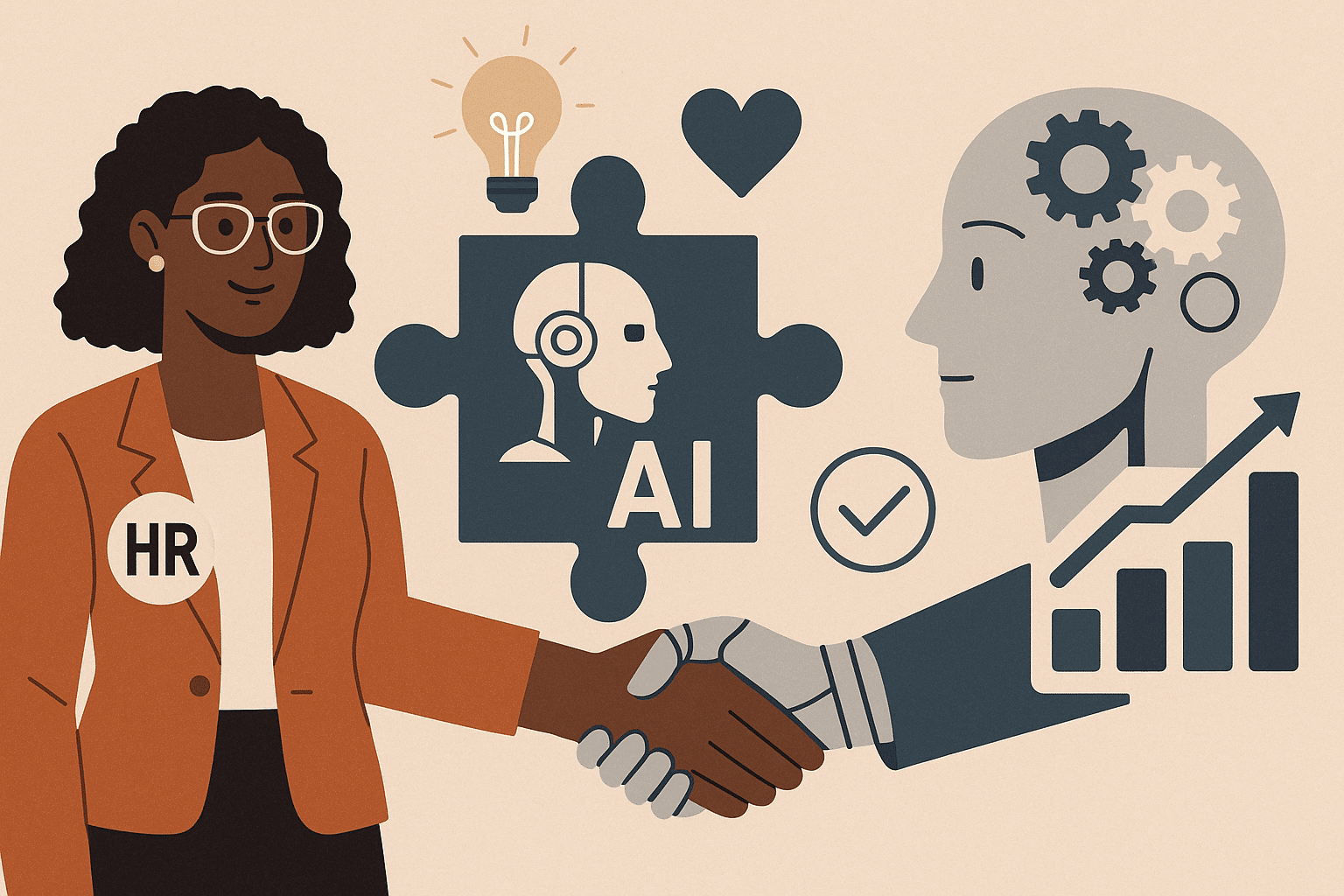
Artificial intelligence has quickly become a key tool in talent management, facilitating recruitment, performance evaluation, and even career planning. However, an excessive reliance on AI can present significant risks for companies, affecting both decision quality and the human dynamics within teams. While AI promises to revolutionize talent management, it is crucial to understand the risks associated with overdependence on this technology.
Loss of Human Judgment in Talent Management
One of the major risks of overreliance on AI is the gradual loss of human judgment in crucial decisions. Algorithms can automate a large part of HR processes, but they often lack the nuance and emotional understanding needed in talent management.
In 2022, a Deloitte study revealed that 60% of companies were already using AI tools for recruitment, a 25% increase from 2019. A striking example of this evolution is Unilever, which integrated AI into its selection process, reducing hiring time by 75% and improving candidate diversity.
However, excessive automation can lead to dehumanized decisions, where individuals are no longer seen as people but merely data points or statistics. By relying too heavily on AI, HR professionals risk overlooking essential human qualities such as creativity, emotional intelligence, or the ability to collaborate—skills that are hard for machines to quantify.
Risk of Bias and Discrimination
Another danger of overreliance on AI is related to algorithmic bias. Algorithms, while perceived as objective, are created and trained on past data, which can introduce systemic biases. For instance, if an algorithm is trained on data where a particular group (e.g., white men) was historically overrepresented in leadership positions, it is likely that the AI will perpetuate these discriminatory trends.
In addition to Amazon’s infamous AI tool that disadvantaged female candidates, other examples of AI bias include sourcing algorithms that target 85% women for cashier positions and target 75% Black individuals for taxi company jobs.
Given AI’s vulnerability to bias, its applications in talent management or recruitment could produce results that violate an organization’s ethical codes and values, potentially harming employee engagement, morale, and productivity. In some cases, companies have had to completely rethink their approach after realizing that their AI systems consistently favored certain groups over others.
Loss of Employee Engagement and Trust
Excessive reliance on AI in talent management can also lead to a deterioration of the relationship between employees and the company. When employees feel that their performance or future within the company is being judged solely by machines, it can create a psychological distance and reduce their engagement.
Moreover, too much automation can harm the perception of fairness in talent management decisions. If employees feel that decisions are made in too mechanical or impersonal a manner, it can weaken their sense of belonging and involvement within the company.
Lack of Adaptability in Complex Situations
One of AI’s great strengths is its ability to process vast amounts of data, but it remains limited in its ability to handle complex or unusual situations that require strategic and human thinking. Talent management is not just about numbers or measurable performance; it includes subjective elements such as potential, motivation, and interpersonal dynamics—factors that algorithms struggle to grasp.
How to Avoid Overreliance on AI?
To get the most out of AI while limiting the risks of overreliance, companies should adopt a balanced approach. Here are a few recommendations:
- Maintain a central role for HR: AI should be used as a decision support tool, not as a substitute for HR professionals. Human judgment must always remain at the heart of strategic talent decisions.
- Train teams on AI use: A solid understanding of AI’s capabilities and limitations is essential. HR teams should be trained not only in using these tools but also in critically assessing them.
- Implement regular audits: As mentioned, algorithms should be regularly audited to detect and correct potential biases, ensuring that talent management processes remain fair and inclusive.
Conclusion
Artificial intelligence offers significant opportunities to improve the efficiency of talent management, but overreliance on this technology can lead to major risks. Algorithmic bias, loss of human judgment, and deterioration of employee-company relations are just a few challenges that require close attention. To avoid these pitfalls, companies must adopt a balanced approach, where AI serves as a complementary tool rather than a one-size-fits-all solution.
The key lies in combining the best of both worlds: AI’s analytical power and human emotional intelligence.


